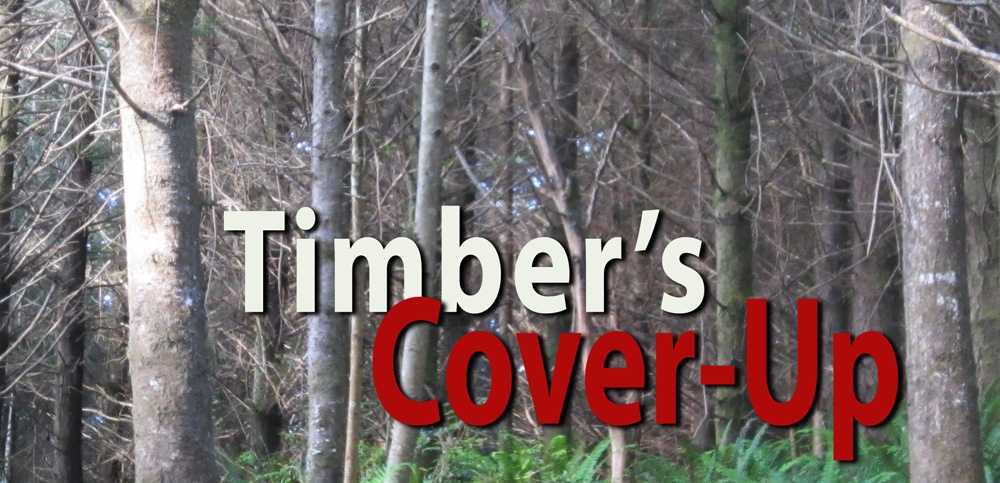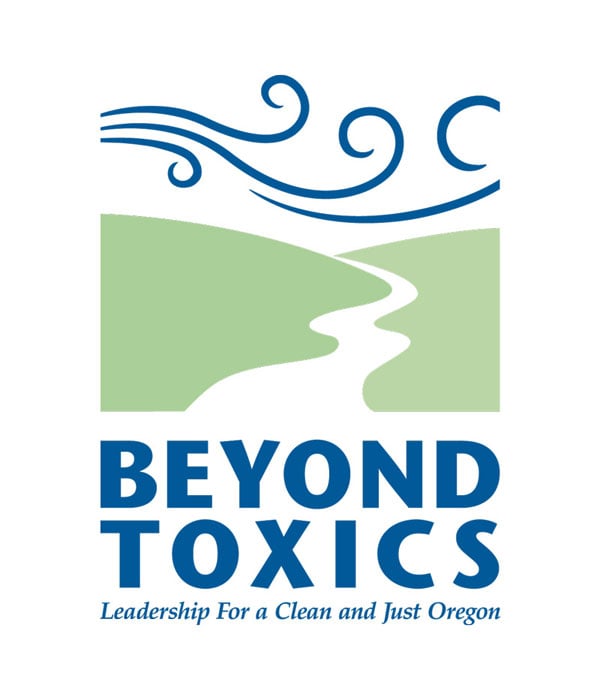
If you are a customer of Mountain Rose Herbs, you’ll be proud of their new wood products policy. Growing numbers of sustainable businesses are trying to source locally, but Mountain Rose Herbs may be the first to commit to buying wood products solely from forests that are managed for native plant bio-diversity, wildlife habitat, pesticide-free, and clean streams.
Mountain Rose Herbs partners with Beyond Toxics to advocate for Resilient Forestry practices in laws and business guidelines. To help folks learn more about Resilient Forestry, Beyond Toxics is releasing a new short film using aerial photography to look far above and deep within industrial forests. Mountain Rose Herbs has been a supporter of the film from the start.
Timber’s Cover-Up has sobering, shocking images of how forest ecosystems are interrupted and destroyed by conventional industrial forestry. In less than five minutes, the film succinctly explores the question what is a healthy, resilient working forest? The film takes a proactive approach and supports a generation of small Oregon forest companies that are building a forest economy favoring selective logging of Oregon’s native hardwood tree species mixed with Douglas fir.
The Oregon corporate timber industry doesn’t want anyone to know how obsolete their forestry practices are. Whether it’s clear-cutting, herbicide use, slash burning, or logging through streams, Oregon forest management is disgraceful.
Chances are you believe that businesses should keep apace with new realities of climate warming, loss of wildlife habitat, and polluted streams, right? Forests can be managed intentionally for native bio-diversity, clean water and large trees capable of impressive carbon storage. Now that’s called resilient forestry!
Consumers like you have created vast environmental benefits by demanding responsible, non-toxic agriculture, right? You deserve to know where your food comes from and how it was grown and harvested. Don’t you agree that we should be asking the same questions about our wood that we ask about our food and herbs – is it pesticide-free and sustainable?

Next time you buy wood, think about:
“Did this 4x4 come from a clear-cut that’s been sprayed with chemicals? Is it FSC certified?”
“Is my baby crawling on oak wood flooring harvested from a responsibly managed forest, or is this wood chemically-treated laminate flooring from China?”
The Oregon corporate timber industry doesn’t want anyone to know how obsolete their forestry practices are.
Like a broken record, Oregon timber propaganda continues to claim that aerial herbicide spraying is necessary. But the opposite approach is supported by certified responsible foresters because experience has repeatedly shown the ecological and environmental impacts of pesticides and the unforeseen consequences of their use.
Without regard for the science and for ecosystem protections, Oregon’s timber industry still heavily uses endocrine disruptors and carcinogens like atrazine, 2,4-D and hexazinone – they don’t care that many such herbicides are banned in other countries.
Oregon’s forestry laws are woefully antiquated. There is a better way.
Watch the new video, Timber’s Cover-Up and find out how to get involved: http://www.OregonForestVoices.org. Take a close look underneath the timber industry’s greenwashing about “replanted” “healthy” forests.
TAKE ACTION TODAY!
1) See the video, "Timber's Cover-Up"
2) Take the Pledge for Healthy, Biodiverse Forests
3) Sign the petition to Governor Brown and other legislative leaders to insist on better protection for Oregon forests
4) DONATE today to fund the next short and incisive film on Resilient and Healthy Forestry

The film, produced by Beyond Toxics, looks at the premise that Oregon can be an industry leader by creating consumer demand for wood harvested from eco-and-climate responsibly managed forests, embedding ecological values within its economic models. Just as the organic food industry markets itself as a solution for healthy, toxic-free eating, similarly Oregon’s nascent sustainable forestry market can present itself as a solution for supporting clean water and climate-positive action.
A battle over the Oregon Forest Practices chemical rules took place in the 2015 Oregon Legislature. Meager progress was made towards rules that would protect streams and rural communities. One result of new legislation is that Oregon, for the first time in its history, now requires a narrow 60-foot no-spray buffer around homes and schools. In comparison, other states like Washington and Idaho have long-standing requirements to give a wide protective buffer around homes, schools and drinking water areas.
Timber’s Cover-Up will be available through the website www.OregonForestVoices.org. The website offers opportunities to read and view the stories of Oregonians impacted by conventional industrial forest practices and new research on alternative models.
____________________________________________________________________________________________________

Lisa Arkin is the Executive Director of Beyond Toxics. Arkin has led the grassroots work and the legislation in Oregon that is changing the statewide discussion around pesticides, chemical drift, and children’s health. Her work with Beyond Toxics resulted in key legislation to reduce pesticides at all schools and state property in Oregon and to designate Eugene as the first U.S city to ban bee-killing neonicotinoid pesticides, a project inspiring other cities to protect pollinators.










